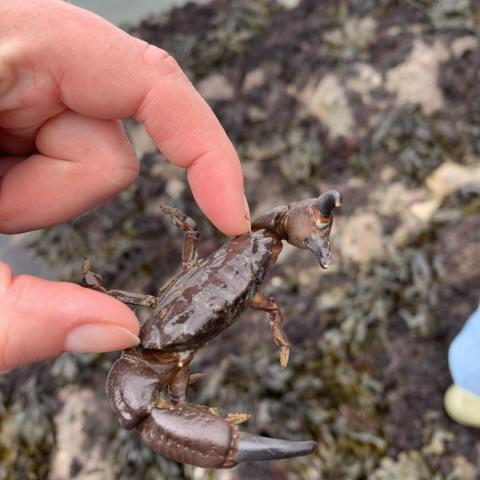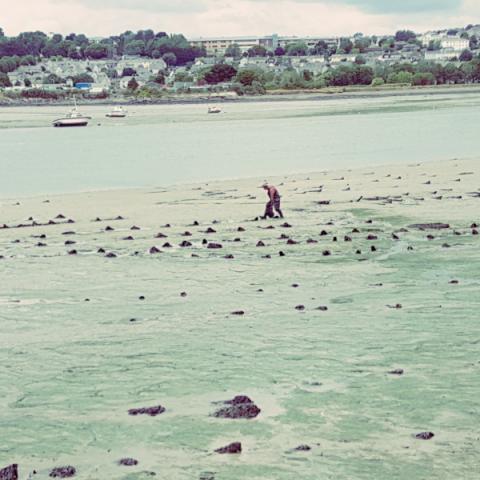Responsible Angling
Responsible anglers consider the rights of others, portray a positive image and help to protect and conserve our natural resources. Be a responsible angler, the waters of Plymouth Sound and Tamar Estuaries depend on it.
Catch and release – help future stocks
Help us to protect future fish populations by adopting a ‘catch and release’ approach to your sea angling.
Allowing juvenile fish to grow to full maturity helps protect the success of future stocks, providing more fruitful angling grounds. There is legal minimum size legislation both inside and out of the estuaries (EU, UK and local legislation).
Reducing angling debris
Popular spots for angling can be blighted by lost fishing line and tackle that can remain in the marine environment for many years, causing great harm to wildlife. Lobster, crab, fish and birds can get caught in lost fishing line, but lost tackle is also a hazard for visitors to the coast, other waterway users and even divers.

You can reduce the risk of accidental tackle loss by:
- Always using adequate equipment for the site and conditions
- Using a strong leader knot and a heavier main line than the hook length
- Using fine wire hooks that will bend under pressure rather than snag underwater
- Building a lead lift into the rig – this will help the rig to plane to the surface clear of snags
- Using a strong line between the weight and the main line
Reducing tackle loss can save you time and money, as well as helping the environment.
If you’re fishing from the shore and already taking your own litter and unwanted tackle home with you, why not spend a couple of minutes picking up other litter in the area around you? A couple of minutes, or even just a couple of extra items of litter, can help to restore and maintain the beauty of our coastline and estuaries, as well as creating a safe haven for wildlife.

Responsible Angler's Code:
Responsible anglers:
- Know and obey the fishing regulations
- Do not endanger themselves or others
- Keep only the fish they will use for the table
- Return their catch and release fish with minimal damage by using barbless hooks, minimal handling with a wet cloth and a landing net
- Record their catch on Fish Recording
- Leave a place cleaner than it was found
- Dispose of fishing line properly
- Do not trespass
- Are courteous to others
Permits & byelaws
Regulated by the Inshore Fisheries Conservation Authorities
There are a number of byelaws in place in the Plymouth Sound and Tamar Estuaries, and permits must be obtained for a number of activities, including recreational potting, netting, and diving for lobster, crab or scallops. Keep up to date by visiting the regional IFCA websites.
